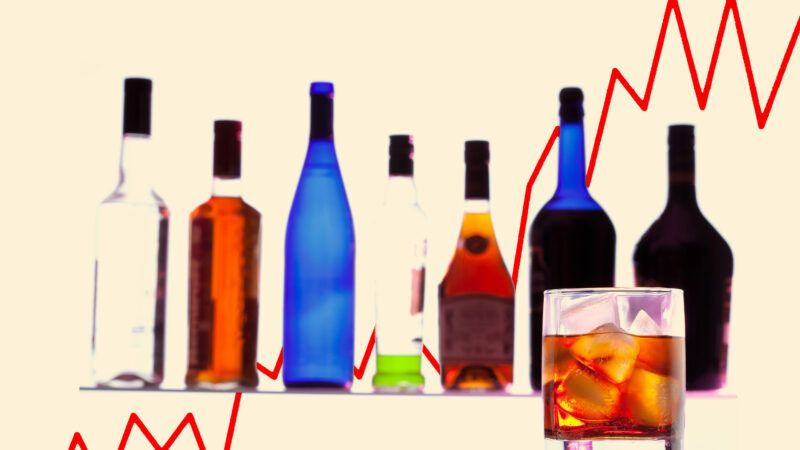Pennsylvania's Liquor Monopoly Is Imposing a New Fee That Will Cost $15 Million Per Year
The new warehousing fee targets booze producers, but drinkers could end up paying most of the tab.

Liquor and wine will likely get more expensive next year in Pennsylvania—and residents will have no choice but to pay the higher prices, thanks to the state's monopoly on alcohol sales.
The Pennsylvania Liquor Control Board (PLCB) voted earlier this month to impose a new "bailment fee," which it says is necessary to cover rising warehouse costs and improve its distribution system. The $1 fee will be charged on all packages that move through the state's warehouses, and will take effect at the start of 2026.
The fee will cost alcohol producers at least $15 million annually, according to a coalition of industry groups that sent a letter to the PLCB last week objecting to the fee. Those higher costs will likely be passed along to consumers, the group warns, as the new fee "will undoubtedly increase prices for Pennsylvania consumers."
The coalition also objected to the PLCB's sudden approval of the new fee, which left little time for public comment or lobbying against it. The fee was approved at the PLCB's meeting on July 16, which the coalition contends was just two days after the proposal was made public.
Because it is a per-package fee, the alcohol producers noted that it will be applied somewhat unevenly. A four-pack of canned cocktails, for example, will face the same $1 charge as an entire case of wine.
"Competition from hemp and cannabis is fierce, tariffs have increased the price of imported alcohol and sharply reduced revenue from U.S. exports, and global alcohol consumption is down," the coalition of alcohol groups said in a statement. "This new fee is yet another hit to the cost of doing business in Pennsylvania."
A spokesperson for the PLCB told Philly Voice that the board "has no plans to raise prices for consumers or licensees on the products it currently sells because of imposing this $1 per case fee on bailment suppliers—unless a price increase is requested by those suppliers."
That's a clever attempt at putting the onus for future price increases on the producers. It also assumes that producers will simply eat the new fee, rather than choosing to pass it along to consumers in the form of higher prices.
In other states, those producers would have more options when a wholesaler or retailer—the PLCB fulfills both functions—decides to impose a new fee or otherwise raise prices. Some wineries or distilleries might choose to pay the extra per-package fee and build the cost into their pricing. Others might look for different distributors to carry their product, or other distributors might try to undercut whichever one was raising fees in the first place.
In Pennsylvania, like in other states that maintain a monopoly on alcohol sales, those options do not exist. If you want to sell or buy alcohol in the Keystone State, you'll simply have to accept whatever prices and fees the PLCB chooses to charge.
When prices for wine and whiskey increase in January, Pennsylvanians should respond by demanding a free market for booze and an end to the state's Prohibition-era alcohol monopoly.
